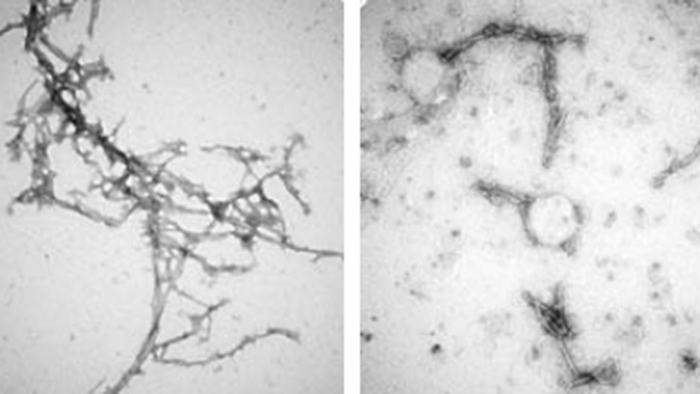 Johns Hopkins University
Johns Hopkins University
- Written by Moderator
JHU Med Scientists Create Nanobody That Can Punch Through Tough Brain Cells
New research: A mini-version of antibodies, called nanobodies, could eventually be used to treat neurocognitive disorders.
Proteins called antibodies help the immune system find and attack foreign pathogens. Mini versions of antibodies, called nanobodies — natural compounds in the blood of animals such as llamas and sharks — are being studied to treat autoimmune diseases and cancer. Now, Johns Hopkins Medicine researchers have helped develop a nanobody capable of getting through the tough exterior of brain cells and untangling misshapen proteins that lead to Parkinson’s disease, Lewy body dementia, and other neurocognitive disorders caused by the damaging protein.
“The success of PFFNB2 in binding harmful alpha-synuclein clumps in increasingly complex environments indicates that the nanobody could be key to helping scientists study these diseases and eventually develop new treatments” says Mao, associate professor of neurology.
The research results are published in this article.
Read the full article at JHU News.
Visible Legacy Comment
The research, published July 19, 2022 in Nature Communications, was a collaboration between Johns Hopkins Medicine researchers, led by Xiaobo Mao, Ph.D., and scientists at the University of Michigan, Ann Arbor. It has led to a recently released technology for license. Corporate technology licensing professionals can view the context of this available technology in Visible Legacy.
Additional Info
-
Navigator:
 Explore the map in Navigator
Explore the map in Navigator - Widget:
- Caption: Disulfide Bond-free and Fibril-specific Nanobodies Prevent the Prion-like α-synuclein Spreading
Related items
- The future of health care is in our cells
- Federal funding will help WSU professor develop technology to recover rare earth elements
- Unlocking the brain: Peptide-guided nanoparticles deliver mRNA to neurons
- Scientists Get to the Bottom of COVID’s Worst Pediatric Complication
- WSU-inspired national gene-editing task force begins work
